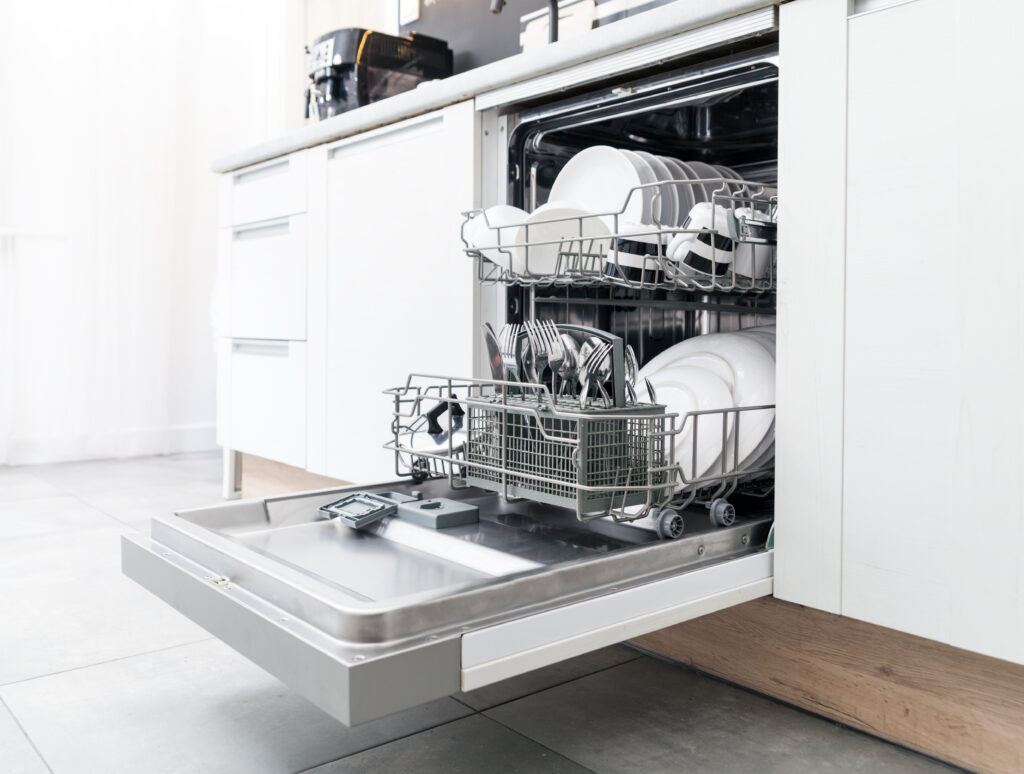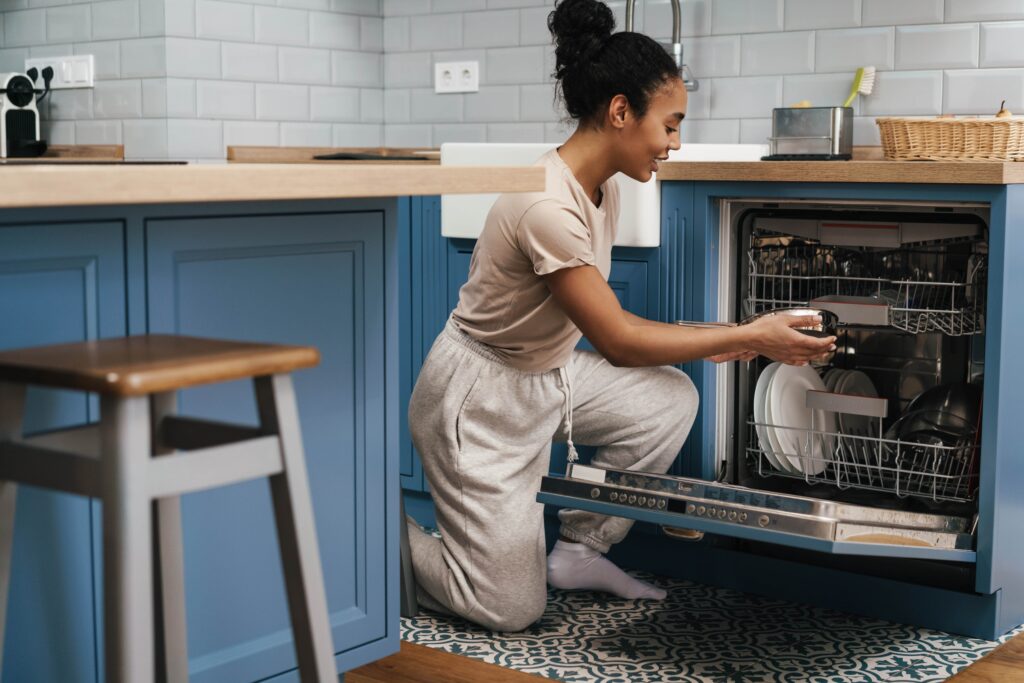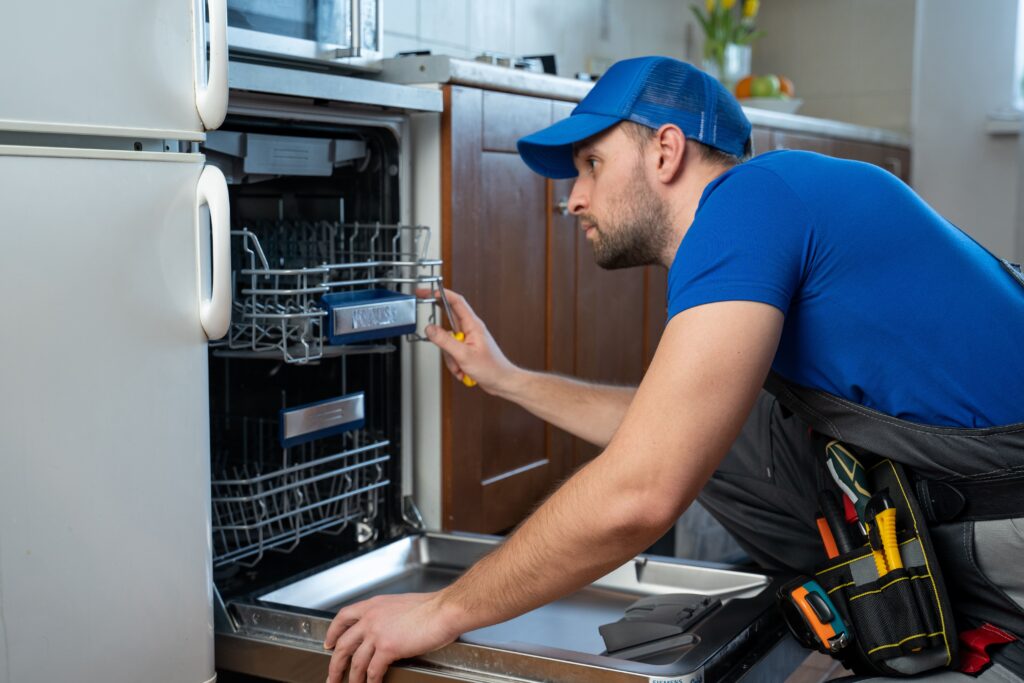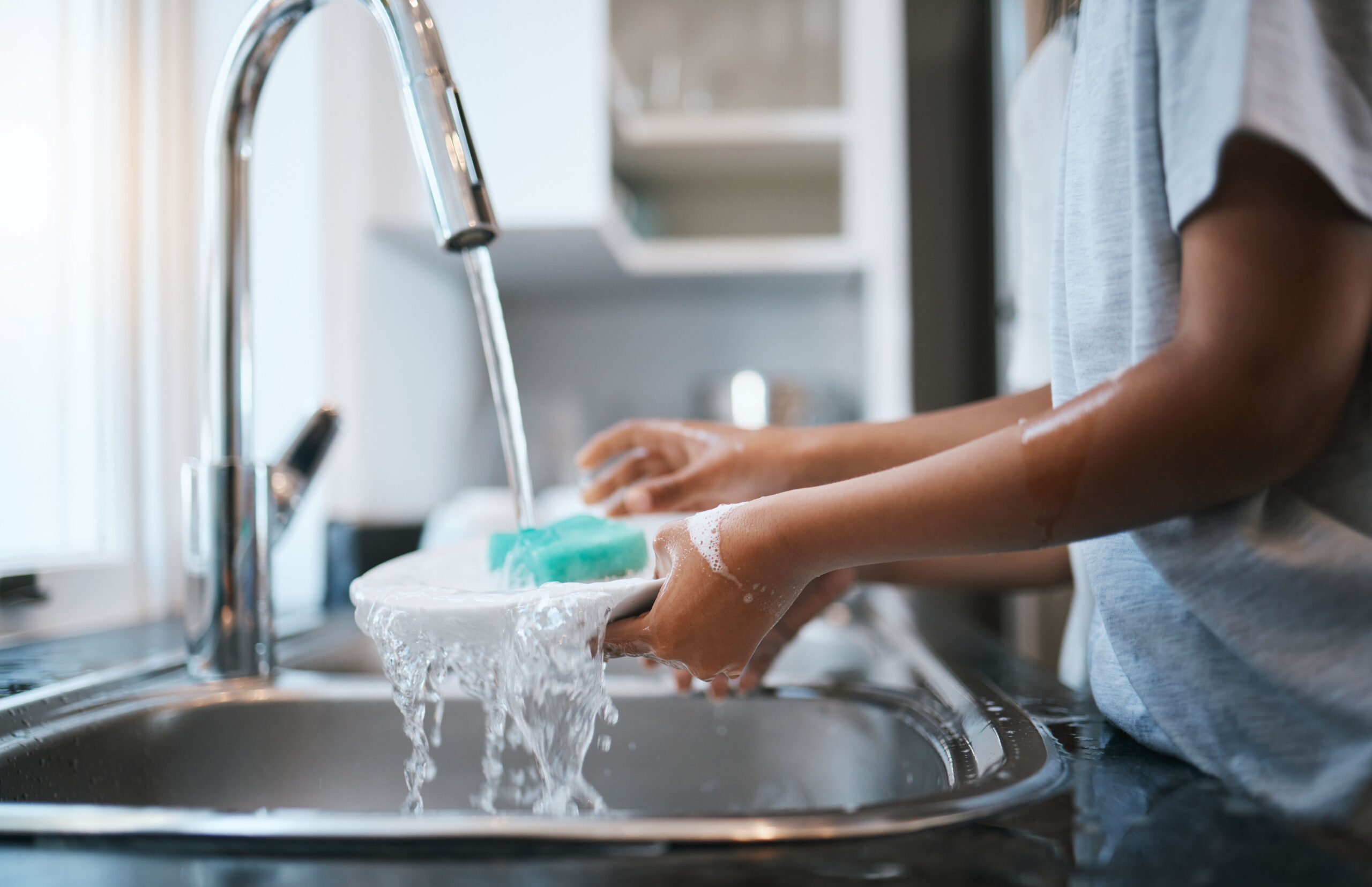When should you replace your dishwasher?
Once you’ve owned a dishwasher, you realise that it’s one of those appliances that you don’t want to live without. Washing up is one of the worst household chores, so having a machine take over that task can be a great relief. In this article, we will talk you through extending the lifespan of your dishwasher, any issues you may have and how you know it is time to replace your dishwasher.
All household appliances have a lifespan. The average life expectancy of a dishwasher is 10 years. Most last between 8 and 15 years before they are irreparable and need replacing. You can expand the lifespan of your dishwasher by cleaning it often, using it carefully and regular maintenance. By choosing a dishwasher from a well-known manufacturer, you are less likely to encounter issues and it will be easier to get spare parts, should you need them. This could mean that you can go longer before you need to replace your dishwasher.

Dishwasher maintenance
Whilst it may be a daunting task, cleaning your dishwasher should be one that you take on regularly. Regular cleaning will reduce strain on the appliance and helps to stop waste build up which could block the important drainage system.
To effectively clean your dishwasher, you will need to use a specialised dishwasher cleaner. A good cleaner will give your machine a deep clean, cut through limescale and grease and ensure that it is left sparkling clean and free of any bad smells. If you use your dishwasher every day, it is recommended that you do a deep clean every three months. However, if you feel like it is necessary, you can clean it more often. Always make sure you follow the instructions to get the best clean possible.
Keeping on top of cleaning and regularly looking over the dishwasher, means that you will notice when there is an issue. Some issues are easily resolved, however others may require repair work by an engineer. Whilst you may not want to fork out for a brand new appliance, sometimes it makes more sense to replace your dishwasher than to pay for multiple repairs.

Signs you may need to replace your dishwasher
Issue: The door isn’t closing properly
Solution: If the door isn't closing, then the dishwasher is unusable.
- The first (and most obvious) thing you need to do is check that nothing is blocking the door. This is likely to be a misplaced cooking utensil.
- If you can’t see any obstructions, then check the latch on the door. If the latch is broken, then this could be an easy fix.
- Unfortunately, if it’s not a blockage or a broken latch then your dishwasher may be warped. If this is the case, then there is no fix and it is time to purchase a new dishwasher.
Issue: Water isn’t draining
Solution: If you’re finding that the dishwasher is full of water after a cycle, then you may have an issue with a blocked drain. At the end of a cleaning cycle, your dishwasher should be free of water. It is completely normal to find some in an upturned bowl or mug. However, if you find any pooled at the bottom of the dishwasher then you need to investigate.
- Make sure you’re not overfilling the dishwasher. An overfull dishwasher may mean that the water isn’t able to drain properly.
- Check if there’s any bits of food stuck in the drain. If there is, you’ll need to clean the drain and then run another cycle. If the drain appears to be clear and you are still having an issue, then you will need to have the machine looked at. Depending on the age of your dishwasher, it may make more financial sense to replace rather than repair.
Issue: There’s a leak
Solution: Obvious signs of a leak include puddles on the floor near the dishwasher, rust inside or on the floor around the appliance and damp in nearby cupboards. When you spot a leak there are several things that you need to check:
- Is the door closing properly? (If it’s not, see above for how you can fix it)
- Is the dishwasher level? If your dishwasher is misaligned or your floor is not level, you can adjust the feet to correct this.
- Are there any loose connections or hoses? You will need to pull out your dishwasher to get to the back of it. Make sure you turn off the water and disconnect the electricity before you start. Any damaged valves or hoses should be easily repairable if the parts are available. If your dishwasher is quite old, it may be difficult to get the parts.
Issue: The dishes are coming out dirty
Solution: If your dishes are coming out of the dishwasher spotty or with dirt on them, then there are several ways you can rectify this:
- First, make sure you are using the right detergent. You may have forgotten to put a tablet in, or you might need to fill up your rinse aid.
- Stacking the dishwasher poorly may be another reason why the dishes are coming out dirty. You need to make sure there’s enough space between items. This allows the water to circulate and reach all areas that need cleaning.
- It’s important to rinse each item before putting them in the dishwasher. If there’s caked on food left on the dishes, then they’re not going to come out clean.
If you have rinsed the dishes, stacked them properly and used the right detergent but are still finding that your dishes are coming out dirty, then unfortunately this is a sign that the dishwasher is malfunctioning. Depending on the age of your appliance you should decide whether it is worth repairing or replacing.

How do you know if you need to repair or replace your dishwasher?
If your dishwasher has issues that you can’t solve yourself, then you have a couple of options. First of all you can try to get the appliance repaired. As mentioned earlier, this all depends on the age of your dishwasher. The older it is, the harder it will be to get the right parts. You need to look at the cost of both the parts and the repair. Even if you can get the correct parts for an affordable price, you may still need to employ an appliance engineer to fix or replace them. Some house insurance policies may cover appliances, if this is the case for you then you should decide if it is worth claiming. Many people may find that it will work out cheaper to buy a new dishwasher.


